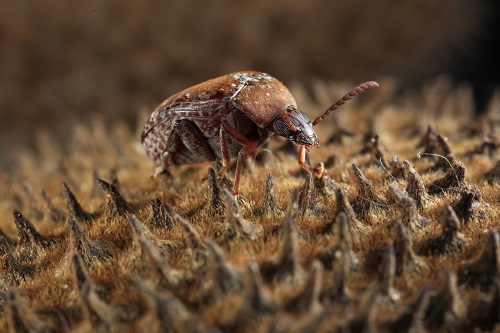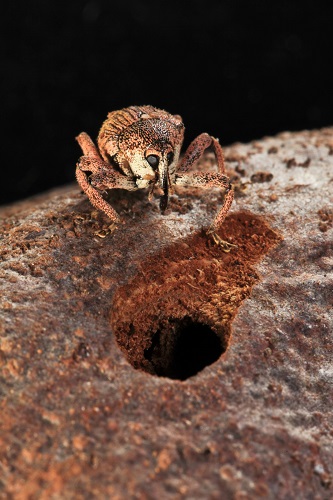Patterns and processes in ecological networks
Species do not exist on their own but in complex networks of interactions. Our goal is to understand the structure, dynamics and functioning of such ecological networks. Research in CERO follows two main strands, Patterns and Processes, and addresses both fundamental and applied questions. Our approach involves a combination of observational and experimental field work, meta-analyses and network theory, applied to both antagonistic and mutualistic networks.
Patterns
To identify factors influencing network structure, we investigate patterns in the structure of ecological networks across both environmental gradients and human-modified habitat gradients. For example, our recent work has found patterns in host-parasitoid food web structure along elevational, but not latitudinal gradients. Our current work includes investigating temporal changes in host-parasitoid food webs, the effect of grassland restoration on food web structure, and the impact of the UK pollinator conservation strategy on solitary bee parasitism and pollination networks.
Processes
We use quantitative ecological networks and manipulative experiments to generate and test key hypotheses relating to the processes structuring networks. We investigate how these processes affect the functioning and stability of networks. We have a particular interest in the role of trophic- and trait-mediated indirect interactions in structuring communities. Current empirical work includes investigating how the strength of trophic cascades changes along a tropical forest disturbance gradient and quantifying the importance of indirect interactions structuring plant and insect communities.
Study systems and sites
Most of our work focuses on networks involving herbivorous insects and their host plants and natural enemies; but we also study other systems, including mutualistic plant-frugivore networks. Our field sites include tropical and temperate ecosystems (currently Borneo, Brazil, Panama and the UK).
Funding
We are funded by the Royal Society, NERC, Oxford University and various D.Phil. scholarships detailed on individual web pages.
© Christian Ziegler
Key publications
Morris, R.J., Gripenberg, S., Lewis, O.T. & Roslin, T. (2014). Antagonistic interaction networks are structured independently of latitude and host guild. Ecology Letters 17, 340-349
Maunsell, S.C., Kitching, R.L., Burwell, C.J. and Morris, R.J. (2014) Changes in host-parasitoid food web structure with elevation. Journal of Animal Ecology. doi: 10.1111/1365-2656.12285
Staniczenko, P.P., Lewis, O.T., Jones, N.S. & Reed-Tsochas, F. (2010). Structural dynamics and robustness of food webs. Ecology Letters 13, 891–899.
Tylianakis, J.M., Tscharntke, T. & Lewis, O.T. (2007) Habitat modification alters the structure of tropical host-parasitoid food webs. Nature, 445, 202-205
Morris, R.J., Lewis, O.T. & Godfray, H.C.J. (2004) Experimental evidence for apparent competition in a tropical forest food web. Nature 428, 310-313



